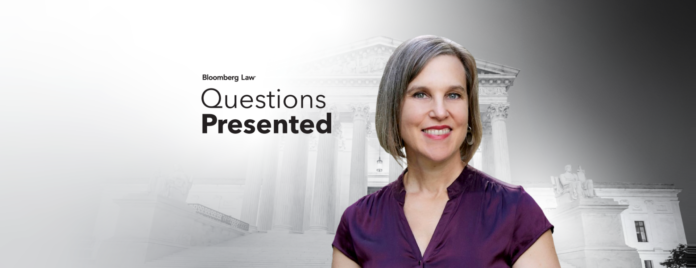Two judges have had enough of former President Donald Trump attacking their law clerks and potential witnesses in the multiple civil and criminal trials he’s facing.
But some commentators have balked at a second gag order by Judge Tanya Chutkan in the federal prosecution of Trump for attempting to overturn the 2020 election. Much of the criticism mindlessly echoes the US Supreme Court’s selectivity in which parts of the Constitution it protects, and which it doesn’t.
Some have challenged the very idea of imposing a gag order to protect the administration of justice. Erwin Chemerinsky, dean of UC Berkeley School of Law, argued that as abhorrent as Trump’s speech is, it can’t be restrained for the purpose of protecting public officials.
But speech often is restricted to protect other values—how else could people be prosecuted for conspiracy (as Trump is facing in 13 counts in Georgia) or prevented from shouting fire in a crowded theater?
Most telling is when critics say Chutkan’s order was unconstitutionally vague. The ACLU has argued that prohibiting Trump from “targeting” potential witnesses “fails to provide the fair warning that the Constitution demands … Reading the order, Defendant cannot possibly know what he is permitted to say, and what he is not.”
This argument is absurd on its face. Trump has made bald threats to witnesses, saying upon his indictment, “If you go after me, I’m coming after you.” As Chutkan pointed out, Trump made multiple similar statements “using language communicating not merely that he believes the process to be illegitimate, but also that particular individuals involved in it are liars, or ‘thugs,’ or deserve death.”
More importantly, this vagueness argument ignores just how inconsistent the Supreme Court is when protecting constitutional rights.
In recent years, the Supreme Court has taken protection of free speech to extremes, including shielding those who commit animal cruelty for sexual pleasure from prosecution. And it has allowed religious zealots to disrupt the funerals of war veterans with homophobic abuse completely unrelated to the war heroes being honored. This is all under the guise of the Constitution prohibiting vagueness and over-broadness.
At the same time, it has disregarded other constitutional protections, particularly Fourth Amendment ones.
In contrast to the presumption of ignorance and naivete in the First Amendment context, the Supreme Court expects absurd levels of sophistication from criminal suspects and those potentially facing harassing stops by police officers.
The Fourth Amendment prohibits unreasonable searches and seizures, but what is a seizure? There are actually three categories—a short stop that should only last a few minutes, a more serious seizure that possibly can last hours, and an arrest.
The Supreme Court pretends that the ordinary person, despite the stress of potentially being physically restrained by police officers, will be able to differentiate between these three categories, without being informed of what kind of seizure they’re being subjected to.
The difference between each of the three is what the “reasonable person” would expect—is the seizure “arrest-like”? If so, Miranda rights should be given. If not, at some point the person is free to go—but the court says a police officer has no obligation to say when the person is free to leave.
So if you’re pulled over for a speeding ticket, you’re expected to infer when that involuntary seizure is over. And the officer can ask to search your car without telling you the stop has been completed and you’re allowed to leave. And if instead at some point the police officer thinks they have enough evidence to charge you with a crime, you’re expected to intuit that this change in your status has occurred.
And yet serious scholars argue Trump can’t know what it means to target witnesses, and so the Constitution has been violated due to this ambiguity.
It’s not a coincidence that the Supreme Court has chosen to prioritize First Amendment rights. By expanding what free speech covers, the court has enabled discrimination and undermined other constitutional rights.
For instance, it ruled last year that the free speech rights of website designers outweigh the right of gay couples not to be discriminated against. And back when women nationwide had the right to reproductive choice, the court repeatedly prioritized the free speech rights of abortion opponents over the right of women to seek medical care without being harassed or their privacy invaded.
This wasn’t always the case. Free speech used to be a value progressives embraced and conservatives often disdained. When it came to protesting the Vietnam war, for instance, it was the liberal justices who embraced free speech and the conservatives who opposed it.
But the Roberts Court has recognized that free speech is a cudgel that can be used against other rights.
The resulting preciousness of the treatment of those under potential restraints on speech—such as assuming Trump can’t understand what it means to target a witness—isn’t a product of the court standing up for fundamental freedoms. It’s a symptom of a jurisprudence that values some rights over others, and some people over others.
Commentators should think before they mindlessly echo that set of priorities.
This article does not necessarily reflect the opinion of Bloomberg Industry Group, Inc., the publisher of Bloomberg Law and Bloomberg Tax, or its owners.
Author Information
Tonja Jacobi is professor of law and Sam Nunn Chair in Ethics and Professionalism at Emory University School of Law, where she specializes in Supreme Court judicial behavior and public law.
